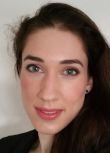CAR T-Cell Therapy In Non-Hodgkin's Lymphoma: Where Do We Go From Here?
By Sorcha Cassidy, Ph.D., and Rachel Webster, D.Phil., Decision Resources Group

The approval of two autologous anti-CD19 CAR T-cell therapies — Kite/Gilead’s Yescarta (axicabtagene ciloleucel) and Novartis’ Kymriah (tisagenlecleucel) — has revolutionized treatment of relapsed or refractory (R/R) diffuse large B-cell lymphoma (DLBCL), an aggressive subtype of non-Hodgkin’s lymphoma (NHL) with historically limited treatment options and high unmet need. Following this success, many key players are now pursuing development of these ground-breaking therapies in earlier treatment settings and in other NHL subtypes such as mantle cell lymphoma (MCL), chronic lymphocytic leukemia (CLL), and follicular lymphoma.
To highlight advancements in this rapidly evolving space, we review pivotal data from two key studies presented at the 2019 American Society of Hematology (ASH) meeting that are likely to drive further regulatory approvals in 2020: TRANSCEND-NHL-001, investigating Juno/Celgene’s (now Bristol-Myers Squibb [BMS]) lisocabtagene maraleucel (liso-cel; JCAR017) in R/R large B-cell lymphoma (including DLBCL) and ZUMA-2, investigating Gilead/Kite’s KTE-X19 in R/R MCL. In addition, we discuss some of the clinical and commercial differentiators that will continue to impact uptake and adoption of these autologous CAR T-cell therapies going forward.
Focus On Long-term Efficacy, Safety, And Potential For Outpatient Administration
Liso-cel is a defined-composition anti-CD19 CAR T-cell therapy anticipated to be the third CAR T-cell market entrant in the DLBCL space; in December 2019, BMS filed a supplemental biologics license application (sBLA) with the FDA seeking regulatory approval in this patient population.1 The product differs from Yescarta and Kymriah, as it consists of a specified ratio of CD4+/CD8+ T cells; however, it contains a 4-1BB costimulatory domain, similar to Kymriah’s construct.
To date, cross-trial comparison between CAR T-cell studies in DLBCL has proven exceptionally challenging due to differences in patient selection (e.g., prior treatment(s) and transplantation status) and trial design (e.g., use of bridging chemotherapy, different cytokine release syndrome [CRS] grading scales). However, data presented at ASH 2019 from TRANSCEND-NHL-001 indicates that liso-cel is broadly comparable in terms of efficacy to that of currently available CAR T-cell therapies (particularly Yescarta) (Table 1), although response rates with liso-cel are markedly higher than reported for Kymriah in the JULIET study.2, 3, 4 Three-year follow-up from ZUMA-1 was also presented at ASH 2019 demonstrating a median overall survival of 25.8 months for Yescarta, which will provide a crucial benchmark for future CAR T-cell therapies.5 Although challenges clearly remain to firmly differentiate based on efficacy alone, longer-term follow-up (assessing response durability) and real-world outcomes will be important to tease out further differences between the products in DLBCL.
At ASH 2019, Kite/Gilead also presented data from the ZUMA-2 study investigating KTE-X19 in patients with R/R MCL and a BLA filing subsequently followed to the FDA.6,7 KTE-X19 is an autologous anti-CD19 CAR T-cell therapy consisting of an identical construct to Yescarta, with the main difference in the manufacturing step of lymphocyte enrichment. Results from ZUMA-2 have demonstrated remarkably high response rates (93 percent objective response rate and 67 percent complete response) for the therapy in this patient subset, with similar rates of severe CRS (15 percent) and neurological events (31 percent) as reported for Yescarta in DLBCL. If approved, KTE-X19 will be the first CAR T-cell therapy approved in MCL and will provide these patients with an important treatment option when no alternatives remain.
Table 1: Key efficacy and safety outcomes of anti-CD19 CAR T-cell therapies in relapsed/refractory large B-cell lymphoma (including DLBCL)
|
Key Efficacy/Safety outcome |
Yescarta |
Kymriah |
Liso-cel |
|
ORR |
83% |
52% |
73% |
|
CR |
58% |
40% |
53% |
|
Median DOR |
11.1 months |
10 months - NR |
13.3 months |
|
Median PFS (all patients) |
5.9 months |
-- |
6.8 months |
|
Median OS (all patients) |
25.8 months |
12 months |
19.9 months |
|
Grade ≥3 CRS |
11% |
22% |
2% |
|
Grade ≥3 Neurological events |
32% |
12% |
10% |
|
Abbreviations: CR = complete response; CRS = cytokine release syndrome; DOR = duration of response; NR = not reached; ORR = objective response rate (Yescarta and liso-cel); ORR = overall response rate (Kymriah); OS = overall survival; PFS = progression-free survival |
|||
Given the life-threatening toxicities associated with autologous CAR T-cell therapy, safety and tolerability will likely be on par with efficacy going forward. In addition, the safest product will be well positioned for outpatient use, ultimately maximizing uptake through improving patient access and reducing additional costs of hospital inpatient management. In terms of safety, liso-cel has demonstrated notably lower rates of severe CRS and neurotoxicity in TRANSCEND-NHL-001 in comparison to the approved CAR T-cell therapies, although four treatment-related deaths occurred. In the study, just under 10 percent of patients were administered liso-cel in the outpatient setting, and BMS is pursuing this strategy in the TRANSCEND-OUTREACH and PILOT studies.8,9 This approach may indeed provide liso-cel with an important competitive edge over Yescarta, Kymriah, and other autologous CAR T-cell therapies.
Manufacturing Reliability, Production Turnaround Time Increasingly Critical
Given the urgency to treat patients with rapidly progressive disease, if an autologous CAR T-cell therapy can achieve the upper hand in terms of logistics (manufacturing and production), it will undoubtedly gain a competitive advantage in the long term. Efficient delivery of the therapy to patients will become increasingly critical in aggressive NHL subtypes such as DLBCL and MCL, with any manufacturing failures or delays compromising patient lives. To date, Kite/Gilead has demonstrated a low manufacturing failure rate for Yescarta (1 percent) in ZUMA-1,10 with Novartis reporting a higher rate of manufacturing failure for Kymriah (7 percent) in JULIET.11 In TRANSCEND-NHL-001, two patients were not infused with liso-cel due to manufacturing setbacks, and a further 24 patients received nonconforming product that may be related to challenges in achieving a specified ratio of CD4+/CD8+ T cells.12 Manufacturing turnaround time is also being closely monitored by physicians, with some deeming a three-week wait as unacceptable for patients; Yescarta boasts the shortest median vein-to-vein (manufacturing turnaround time) of 17 days13 compared to 22 days for Kymriah14 and 24 days for liso-cel.
With investigation of CAR T-cell therapies also underway in indolent NHL subtypes (CLL and FL) and in earlier treatment settings, logistics are likely to remain under intense scrutiny. Patients with indolent NHL are well managed with a plethora of available drug therapies, and logistical hurdles may deter physicians from prescribing CAR T-cell therapies or reserving them as a last resort. For example, in CLL, CAR T-cell therapies may be restricted to patients with high-risk disease (patients with 17p deletions/p53 mutations) that are refractory or relapsed to multiple lines of treatment with Imbruvica, venetoclax, or Calquence-based therapy. Ultimately, convenience of administration and reliable manufacturing and production processes will have a significant impact on how autologous CAR T-cell therapies are prescribed, positioned, and sequenced across treatment lines and/or in other disease subtypes.
Other Considerations Impacting Uptake And Adoption Of Autologous CAR T-Cell Therapies
A key sticking point in the future is the inevitable high cost of CAR T-cell therapy and its associated management costs. In 2019, the Centers for Medicare and Medicaid Services (CMS) finalized the decision to extend nationwide coverage of CAR T-cell therapies under Medicare and raise reimbursement of the total cost from 50 percent to 65 percent, which will further aid adoption of these expensive therapies in the United States. While this will gradually help to bridge the reimbursement gap for these complex treatments, accessibility is likely to remain a prominent hurdle. Of note, it remains to be seen how KTE-X19 will be priced in MCL and whether Kite/Gilead will follow a similar pricing strategy as Yescarta and Kymriah in DLBCL ($373,000 per infusion) or Kymriah in acute lymphocytic leukemia ($475,000 per infusion).
Another consideration for autologous CAR T-cell therapies in NHL will be mounting competition within and between therapy classes. Allogeneic “off-the-shelf” CAR T-cell therapies are in the clinical pipeline and although they hold clear advantages from a cost and scalability standpoint, concerns remain about response durability, T cell persistence, and graft-versus-host-disease (GVHD). Perhaps of most relevance, autologous CAR T-cell therapies will now face increasing competition from other recently approved targeted agents in DLBCL and MCL (e.g., Roche’s Polivy, BeiGene’s Brukinsa) alongside those in late-phase pipeline development (e.g., MorphoSys’ tafasitamab and anti-CD19 bispecific antibodies/antibody-drug conjugates) that have shown promising outcomes and good tolerability and that hold clear logistical and potential cost advantages for patients.
Summary
Despite the unquestionable efficacy of autologous CAR T-cell therapies in NHL, widespread adoption has been hampered by severe side effects, manufacturing hurdles, and reimbursement delays, making this an increasingly complex space for drug developers to navigate. With further competition expected imminently in the NHL market, it will become even more critical for autologous CAR T-cell developers to differentiate themselves effectively to guarantee optimal use and sequencing.
References
- Bristol-Myers Squibb Announces Submission of Biologics License Application for CAR T-Cell Therapy Lisocabtagene Maraleucel (liso-cel) to FDA (accessed January 2020). Link: https://news.bms.com/press-release/corporatefinancial-news/bristol-myers-squibb-announces-submission-biologics-license-ap
- Abramson JS et al. Pivotal Safety and Efficacy Results from Transcend NHL 001, a Multicenter Phase 1 Study of Lisocabtagene Maraleucel (liso-cel) in Relapsed/Refractory (R/R) Large B Cell Lymphomas. 2019 Annual ASH Meeting. Abstract #241. Link: https://ash.confex.com/ash/2019/webprogram/Paper127508.html
- Locke FL et al. Long-term safety and activity of axicabtagene ciloleucel in refractory large B-cell lymphoma (ZUMA-1): a single-arm, multicentre, phase 1-2 trial. Lancet Oncol. 2019;20(1):31-42. Link: https://www.thelancet.com/journals/lanonc/article/PIIS1470-2045(18)30864-7/fulltext
- Schuster SJ et al. Tisagenlecleucel in Adult Relapsed or Refractory Diffuse Large B-Cell Lymphoma. N Engl J Med. 2019;380(1):45-56. Link: https://www.nejm.org/doi/full/10.1056/NEJMoa1804980
- Kite Announces Long-term Data From ZUMA-1 Showing Approximately Half of Refractory Large B-cell Lymphoma Patients Were Alive Three Years After Yescarta Treatment (accessed January 2020). Link: https://www.gilead.com/news-and-press/press-room/press-releases/2019/12/kite-announces-long-term-data-from-zuma-1-showing-approximately-half-of-refractory-large-b-cell-lymphoma-patients-were-alive-three-years-after-yescart
- A Safety Trial of Lisocabtagene Maraleucel (JCAR017) for Relapsed and Refractory (R/R) B-cell Non-Hodgkin Lymphoma (NHL) in the Outpatient Setting (TRANSCEND - OUTREACH) (accessed January 2020). Link: https://clinicaltrials.gov/ct2/show/NCT03744676
- Lisocabtagene Maraleucel (JCAR017) as Second-Line Therapy (TRANSCEND-PILOT-017006) (accessed January 2020). Link: https://clinicaltrials.gov/ct2/show/NCT03483103
- Wang ML et al. KTE-X19, an Anti-CD19 Chimeric Antigen Receptor (CAR) T Cell Therapy, in Patients (Pts) With Relapsed/Refractory (R/R) Mantle Cell Lymphoma (MCL): Results of the Phase 2 ZUMA-2 Study. 2019 Annual ASH Meeting. Abstract #754. Link: https://ash.confex.com/ash/2019/webprogram/Paper126064.html
- Kite Submits Biologics License Application to U.S. Food and Drug Administration for Company’s Second CAR T Cell Therapy (accessed January 2020). Link: https://www.gilead.com/news-and-press/press-room/press-releases/2019/12/kite-submits-biologics-license-application-to-us-food-and-drug-administration-for-companys-second-car-t-cell-therapy
- Yescarta® HCP Product Information 2019 (accessed January 2020). Link: https://www.yescartahcp.com/
- Schuster SJ et al. Tisagenlecleucel in Adult Relapsed or Refractory Diffuse Large B-Cell Lymphoma. N Engl J Med. 2019;380(1):45-56. Link: https://www.nejm.org/doi/full/10.1056/NEJMoa1804980
- Abramson JS et al. Pivotal Safety and Efficacy Results from Transcend NHL 001, a Multicenter Phase 1 Study of Lisocabtagene Maraleucel (liso-cel) in Relapsed/Refractory (R/R) Large B Cell Lymphomas. 2019 Annual ASH Meeting. Abstract #241. Link: https://ash.confex.com/ash/2019/webprogram/Paper127508.html
- Yescarta® HCP Product Information 2019 (accessed January 2020). Link: https://www.yescartahcp.com/
- Kymriah® (tisagenlecleucel) suspension for intravenous infusion: Fact Sheet (accessed January 2020). Link: https://novartis.gcs-web.com/static-files/a2272924-bf6c-47e4-9ece-14fb5547ab47
About The Authors:
 Sorcha Cassidy, Ph.D., manages a team of analysts who conduct primary and secondary market research on several oncology indications across the major pharmaceutical markets. Cassidy is passionate about hematological cancer research and has covered many indications in this space, including NHL, CLL and AML. She has expertise in competitive intelligence, market research, and delivering strategic insights that address key client business questions. Cassidy holds an M.Res. and Ph.D. in Immunology from Imperial College London, where she investigated the role of killer immunoglobulin-like receptors (KIR) on natural killer (NK) cells in various diseases. Prior to joining DRG, she worked in Janssen UK as a market research manager in immunology.
Sorcha Cassidy, Ph.D., manages a team of analysts who conduct primary and secondary market research on several oncology indications across the major pharmaceutical markets. Cassidy is passionate about hematological cancer research and has covered many indications in this space, including NHL, CLL and AML. She has expertise in competitive intelligence, market research, and delivering strategic insights that address key client business questions. Cassidy holds an M.Res. and Ph.D. in Immunology from Imperial College London, where she investigated the role of killer immunoglobulin-like receptors (KIR) on natural killer (NK) cells in various diseases. Prior to joining DRG, she worked in Janssen UK as a market research manager in immunology.
 Rachel Webster, D.Phil., manages and leads a team of oncology business insights analysts in producing syndicated primary and secondary market research reports and custom analysis on a wide range of oncology indications. She also provides client support for all oncology products and assists global biopharmaceutical companies uncover strategic opportunities. Webster has 10 years of experience in market forecasting and has a broad knowledge of oncology indications and markets; she has a particular interest and expertise in immuno-oncology. Prior to joining DRG, Webster was a research scientist at Immunocore in the target validation group, where her research focused on identifying target antigens expressed in cancers.
Rachel Webster, D.Phil., manages and leads a team of oncology business insights analysts in producing syndicated primary and secondary market research reports and custom analysis on a wide range of oncology indications. She also provides client support for all oncology products and assists global biopharmaceutical companies uncover strategic opportunities. Webster has 10 years of experience in market forecasting and has a broad knowledge of oncology indications and markets; she has a particular interest and expertise in immuno-oncology. Prior to joining DRG, Webster was a research scientist at Immunocore in the target validation group, where her research focused on identifying target antigens expressed in cancers.
